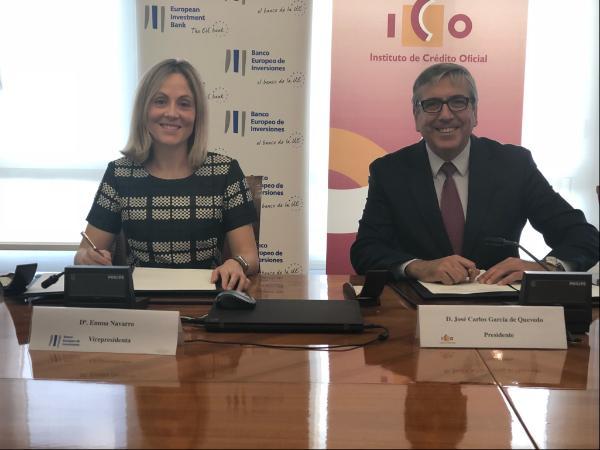
- The aim of this new agreement is to provide financing on favourable terms for small projects
Ensuring that credit reaches entrepreneurs and young people wanting to turn their ideas into a business is the objective behind the agreement signed between the European Investment Bank (EIB) and the Instituto de Crédito Oficial (ICO). The EIB will provide EUR 400m to ICO, which will in turn contribute an additional EUR 400m of its own, meaning that the financing volume available to micro-enterprises (with ten employees or fewer) and the self-employed will total EUR 800m.
At the signing ceremony in Madrid, EIB Vice-President Emma Navarro emphasised that the agreement demonstrates “the EIB's efforts to continue bringing the advantages of its financing not only to large projects, but also to small businesses, which are key to wealth and job creation in Spain. It also once again shows the close relationship between the EU bank and ICO, and acts as an example of how cooperation between the two institutions is making it possible to provide financial instruments to help boost the Spanish economy.”
ICO Chairman José Carlos García de Quevedo said: “This operation is another demonstration of the common goal of supporting Spanish entrepreneurs that is held by both institutions, and strengthens ICO's role as a benchmark for financing the projects of micro-SMEs and the self-employed. It should be highlighted that, in 2017, 66.5% of the loans granted by ICO credit lines were taken out by companies with fewer than ten employees.”
The EIB and ICO funds will provide small businesses and the self-employed with financing on favourable conditions – both in terms of maturity and interest rates – so that they have the credit they need to drive their growth and improve their productivity.
This agreement is the second operation that the EIB has signed with ICO specifically targeting the self-employed and micro-enterprises for the financing of small projects in the industrial and services sectors. The previous operation was launched in late-2015 and has benefited more than 10 000 micro-enterprises, most of which have fewer than three employees. They received an average loan of EUR 28 000 to put their projects into practice.

©EIB
Download original